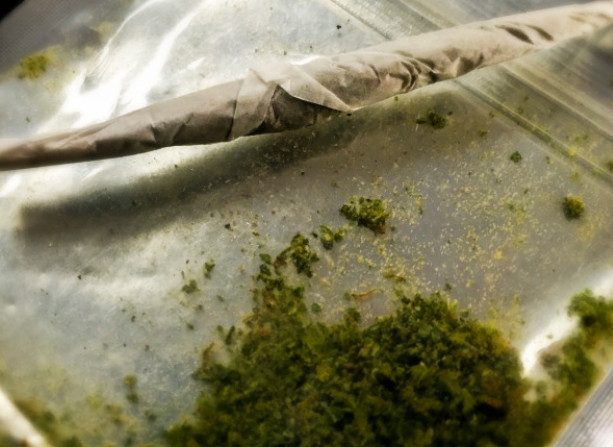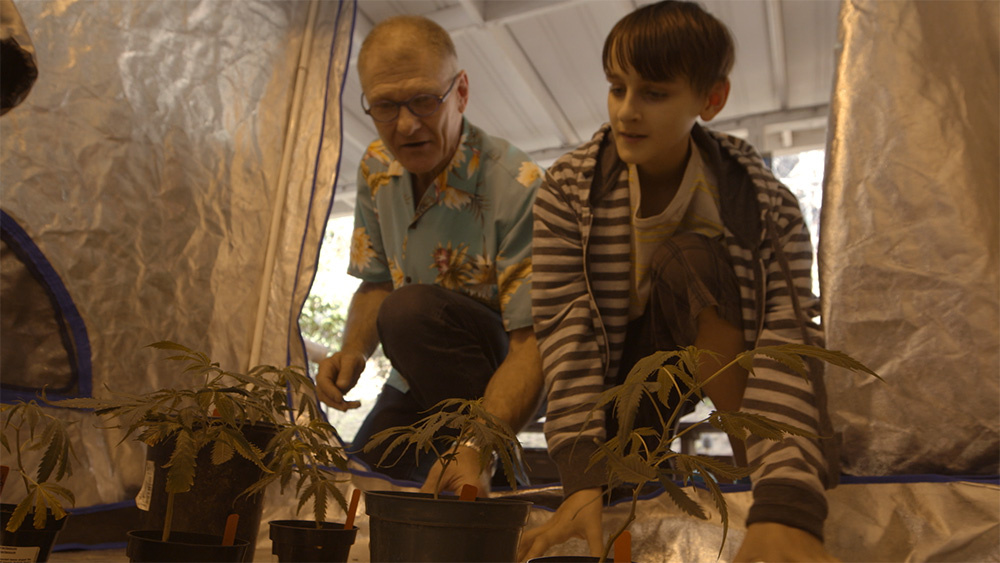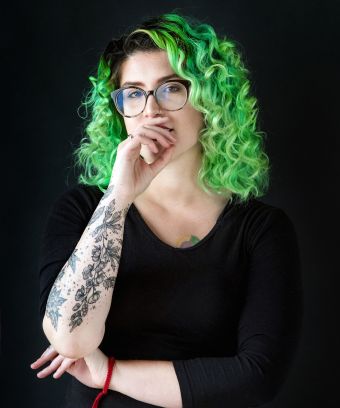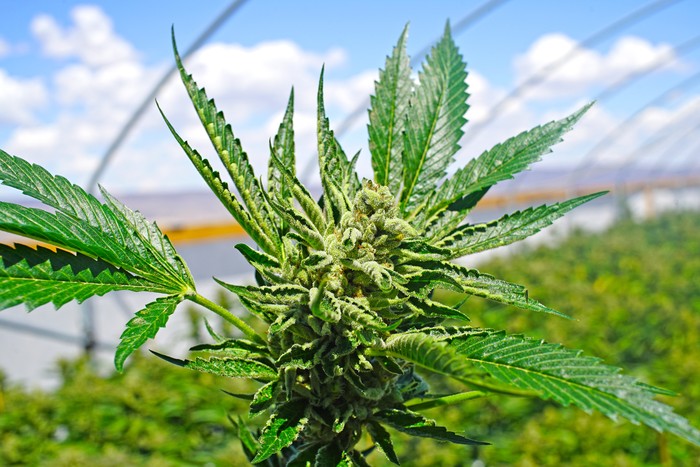Tomorrow, Canadians will be able to legally purchase and consume cannabis.
If you’re wondering where to buy it, what you need to know before you buy it, and where you can consume it, we’ve got you covered.
Where can you buy cannabis?
Albertans looking to legally buy recreational cannabis have two options: There’s albertacannabis.org — operated by the AGLC, it’s the province’s only online cannabis retailer — or buying from a licensed retail cannabis store.
Consumers will need to provide proof they are over the age of 18 to buy cannabis anywhere.
The online retailer will launch at 12:01 a.m. on Oct. 17. You will be prompted to fill out a form with some personal information and the website will do a quick background check. If for some reason your identity can’t be verified through the website, you may need to upload a piece of photo ID. If that doesn’t work, you will receive a barcode to take to a Canada Post location where an in-person age verification can be done.
The website offers a variety of cannabis products from 15 licensed producers, and a phone number on the website will connect consumers to an AGLC representative who can answers questions. “AGLC” will show up on credit card statements for website purchases. Packages will be delivered to your door, and you’ll have to show ID once again. If you aren’t home, the package will be taken to a post office where you will have to show ID to pick it up. All packages will be unmarked and discreet and deliveries will come within one to five days, the AGLC says.
Retail sales are privatized in Alberta, so cannabis stores across the province will open under various names. They’ll be somewhat discreet — no bongs in the window — and if you appear to be 25 years old and under, you’ll have to show ID as soon as you walk in. Children will not be allowed in stores at all. Cannabis will be locked securely in the back, but some shops may have small containers where consumers can smell the product. Retail store hours will be like liquor stores — generally open from 10 a.m. to 2 a.m.
Wondering about the difference between a sativa and an indica, or what dosage of CBD you might need to control pain? AGLC rules dictate shop employees will not be able to tell you. They’ve undergone AGLC-mandated training, but they can’t give medical advice, so consumers will have do to some research in advance.
Where can you find a retail cannabis store?
Alberta expects to license 250 cannabis stores in its first year. So far, the AGLC has granted 17 interim retail cannabis licences, but that doesn’t mean 17 stores will necessarily open on Oct. 17 — some store owners simply might not be ready, and some municipalities are still drafting their own rules around cannabis sales and use.
Edmonton received six of these licenses, and that’s how many pot shops could be open for business on legalization day — the most of anywhere in Alberta. That number rises to 12 if you include Stony Plain, Spruce Grove, St. Albert, Devon and Fort Saskatchewan.
Calgary has been granted two interim licences, and Medicine Hat has three. Stores stocked and ready to open will be granted full licences on Oct. 17. Licences will continue to be granted after Oct. 17, and the AGLC expects there will be about 250 stores in business by the end of the year.
Here is a full list of locations that have been given interim licences:
- Daily Blaze, 1-5009 50th St., Stony Plain
- Green Exchange, 328 South Railway St. SE, Medicine Hat
- Nova Cannabis at Southpointe, 101-9310 Southfort Dr., Fort Saskatchewan
- Nova Cannabis at Grove Landing, 17 Nelson Dr., Spruce Grove
- Nova Cannabis at Willow Park, 252-10816 MacLeod Tr. SE, Calgary
- Nova Cannabis at Namao, 9611 167th Ave., Edmonton
- Nova Cannabis at Shoppers South, B8015 104th St., Edmonton
- Cannabis House, 6560 170th Ave., Edmonton
- 420 Premium Market, D290-9737 MacLeod Tr. SW, Calgary
- Small Town Buds, 102-6 Athabasca Ave., Devon
- Waldo’s 420 Store, 946 16th Str. SW, Medicine Hat
- Numo Cannabis Corp., 117733 95th St., Edmonton
- Fire & Flower Cannabis Inc., 313-10451 99th Ave., Fort Saskatchewan
- Fire & Flower Cannabis Inc., 19 Bellerose Dr., St Albert
- Fire & Flower Cannabis Inc., 9610 165th Ave., Edmonton
- Alternative Greens, 12451 97th St., Edmonton
- Westside Weed, 914 South Railway St. SE, Medicine Hat
What can you buy, and how much of it?
You can legally purchase dried bud, milled cannabis, plant seeds, cannabis oil, capsules and pre-rolled joints. AGLC’s wholesale catalogue has over 300 cannabis products available.
Every adult Albertan will be allowed to buy or carry up to 30 grams of dried cannabis (or the equivalent in other forms) at a time and each household will be able to grow up to four plants.
One gram of dried cannabis is equivalent to:
- Five grams of fresh cannabis
- 15 grams of edible products (produced at home, and not sold commercially)
- 70 grams of liquid products
- 0.25 grams of concentrates (solid or liquid)
- One cannabis plant seed
What if you want to buy edibles instead?
Edibles remain illegal to sell for the time being, though the federal government has promised to revisit the legality of edible cannabis products next year for a proposed legalization date of October 2019.
But there is nothing stopping a consumer from buying their own cannabis and cooking or baking with it in their own homes. But take it easy, alright? It’s not actually possible to ingest a lethal dose of cannabis, but for the uninitiated, overindulging on edibles can be uncomfortable and even a little scary.
Products like creams that contain cannabis will not be legal, and there are no plans to legalize them yet.
Do you need a prescription?
You do not need a prescription to buy recreational cannabis.
Albertans with a medical prescription for cannabis can also buy from the province’s website or private retail stores, or they can continue buying directly from their licensed producer.
What’s the difference between medical cannabis and recreational cannabis?
Both are cannabis — the difference is mainly in how it is sold and who has had legal access to it previously.
The AGLC will be stocking recreational stores with a variety of different strains of dried cannabis from 15 licensed producers, many of which have been supplying cannabis for medical users for years.
Anyone 18 and over will be able to purchase this cannabis in store and online, provided it is in stock.
Those looking to buy cannabis from a recreational pot shop to treat medical issues will still be able to find strains that include varying levels of CBD or THC (but keep in mind, shop employees won’t be able to give medical advice.)
Medical users who can’t find a specific strain in store will still be able to buy their cannabis directly from their licensed producer.
Can your doctor help you pick cannabis?
If you want to buy recreational cannabis for medical purposes — to ease pain, nausea, or to stimulate hunger, for example — your doctor can help educate you, or at least steer you in the right direction to find more information. If you have questions about the risks or medical benefits of cannabis, your doctor is the best person to ask.
As a starting point, the Government of Canada’s website has answers to frequently asked questions.
Where can you smoke it?
The rules differ depending on where you live, but generally in Alberta, you can’t smoke cannabis in any place where smoking tobacco is already prohibited.
You can’t smoke cannabis on hospital, school or child care facility properties. Nor can you smoke it within five metres from a playground, sports field, skateboard park, zoo, outdoor theatre, or outdoor pool or spray park.
It can’t be smoked in a vehicle — although a parked RV is an exception. You also can’t smoke inside any cannabis retail store.
In Edmonton, cannabis and tobacco can’t be smoked within 10 meters from building doors, windows and patios. Medical cannabis users must abide by these rules as well. Violating this rule could result in a warning — or a $250 fine.
In Calgary, consuming cannabis in any form is not permitted in any public spaces, but is permitted on private property. Those with a prescription will be exempt from the no-smoking rule, though they’ll still have to follow the city’s Smoking and Vaping Bylaw.
That said, medical users can’t smoke or vape in an enclosed public place like a mall or a restaurant, or within five metres of outdoor pools, skating rinks, playgrounds, skate parks, sports fields, Calgary transit property, or entrances to public buildings.
It’s also prohibited for medical users to consume cannabis at Olympic Plaza. The fine for violating Calgary’s Cannabis Consumption Bylaw will be $100.
Cannabis cafes and lounges will remain illegal in Alberta for now, and in some Alberta mountain towns, cannabis is being treated much like smoking, with restrictions in most areas. Visitors to Alberta parks can consume cannabis at registered campsites and in public areas where tobacco is allowed. The fine for violating the provincial smoking bylaw will be $172.
If you live in an apartment or condo, familiarize yourself with its rules and regulations surrounding cannabis use. Some property management companies, like Boardwalk, have banned cannabis use on its properties altogether.
Keep in mind that like alcohol, cannabis can’t be consumed or within reach of anyone in a vehicle, and it is illegal to drive while impaired.
How much will it cost?
This depends on what kind of cannabis product you’re buying, and the quality.
In general, the average price is $8.90 per gram of dried cannabis, the AGLC says. But that’s a wholesale price — retail stores will set their own prices. You will find cannabis at higher and lower prices.
The AGLC has not yet released its retail prices for online shoppers.
According to Statistics Canada, which surveyed medical and non-medical cannabis consumers, prices in Alberta in 2017 averaged around $7.67 a gram, down from $10.27 in 2012.
The average price of dried cannabis was $7.17 in the third quarter of this year. The average national price was $7.20.
Cannabis retailers are still working on finding the pricing sweet spot, and prices could fluctuate in the coming months due to accessibility, and supply and demand.
Credit: www.cbc.ca/













